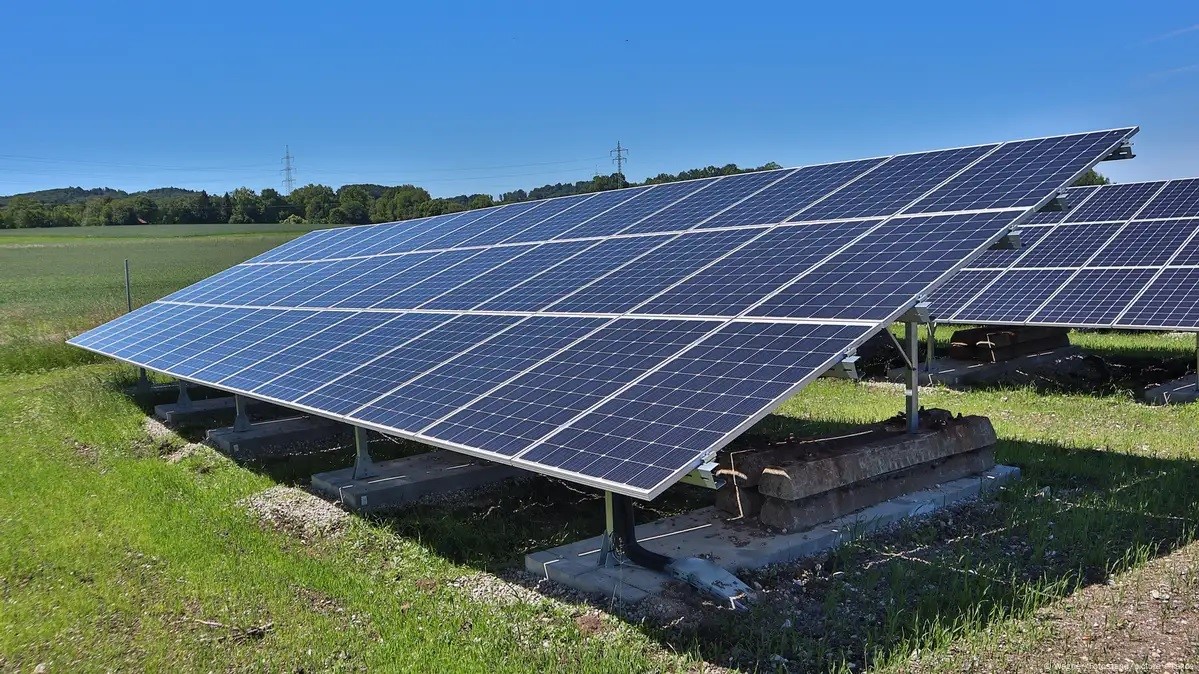Germany has long been seen as a leader in the global energy transition, and its aggressive renewable energy policy and decision to phase out nuclear power have been widely regarded as a model for future energy development. However, the latest opinion from German energy expert Dr. Lars Schernikau is a wake-up call. Speaking at the 2024 Middleburg Coal Conference in Mpumalanga, South Africa, he suggested that the current form of the energy transition, the massive construction of wind and solar-based grids, could be one of the biggest mistakes in human history.
1. The dual challenges of energy density and economic viability
Dr. Shernikau pointed out that the issue of energy density in wind and solar energy cannot be ignored. Although these sources of energy may seem unlimited and free, in reality the amount of energy gained per square meter is very limited. This problem makes wind and solar energy unable to meet peak power demand. The International Energy Agency (IEA) predicts that peak electricity demand will increase more than 1.5 times over the next decade, especially in Asia and other developing economies. This prediction contrasts sharply with the view of Dr. Shernikau, who warned that there are not enough peak power plants being built in the world to meet future power demand.
In addition, wind and solar power facilities have a limited operating lifespan, typically no more than 15 years, well below the expected 25 to 35 years. In China, grid-scale solar panels have a lifespan of 12 to 15 years, a far cry from the 25 to 35 years often predicted in net-zero emissions analysis. This means that in order to maintain the same generation capacity, we need to replace and maintain these facilities more frequently, which undoubtedly increases costs and environmental impacts.

Pictured: German energy expert Schernikau called the current energy transition perhaps the biggest mistake of mankind
2. Intermittent problems and environmental impacts
The intermittent problem is another major challenge for wind and solar. Studies have shown that while wind and solar are able to meet energy demand when electricity demand is at its lowest, they are far from meeting peak energy demand at any stage. The fact that electricity demand is expected to rise dramatically with the increased use of electric vehicles, AI-enabled industrialization, population growth, and overall increased per capita demand will exacerbate the energy shortage.
Environmental impact is also an issue that cannot be ignored. Wind and solar energy systems have an increasing demand for input energy and raw materials, including silicon, aluminum, iron, steel, copper, rare earths, and various chemicals. In addition, the low recyclability of solar panels and other required components creates serious disposal problems. In Europe, some companies have developed sophisticated technologies to recycle more than 90% of the material used in solar panels, but these technologies can face great difficulties in China.
3. Economic impact and social cost
Dr. Shernikau expressed pessimism about the true financial viability of wind and solar on a grid scale. He pointed to the economic problems caused by the high penetration of solar energy in markets such as Germany, where the oversupply of solar energy has led to a sharp drop in prices. For example, the price of solar energy in Germany fell by 50% in May, reducing the revenue of solar producers. The impact of high electricity bills on households is another area of concern. According to a report by German government auditor Bundesnetzagentur, Germany's energy poverty rate has risen to 25 percent, meaning that one in four households is now classified as energy poor.
Fourth, the future path of energy transition
In the face of the current challenges of the energy transition, Dr. Shernikau suggested that alternative energy solutions that last longer and are more efficient should be developed, and that investment in R&D should be increased in existing oil, gas, coal and nuclear energy systems to make them cleaner and more efficient. The goal of the energy transition at German and EU level is to alleviate the pressures caused by reduced dependence on fossil fuel imports and intensifying energy security challenges. More than 40% of the country's electricity system is already filled with fluctuating renewables, and this experience may serve as a lesson for other countries.
5. Summary
Dr. Shernikau's perspective reminds us that the energy transition is not just a technological innovation, but also a complex systems project involving economic, environmental and social aspects. In the process of promoting the energy transition, we need to deeply analyze the advantages and disadvantages of various energy types, balance the short-term and long-term benefits, and also take into account the actual situation of different countries and regions. Through innovation and technological advancement, we can explore more sustainable and efficient energy solutions and contribute wisdom and strength to the global energy transition. Germany's experience in the energy transition, although controversial, undoubtedly provides valuable lessons and enlightenment for the world.






